HOME | ABOUT US | MEDIA KIT | CONTACT US | INQUIRE
HOME | ABOUT US | MEDIA KIT | CONTACT US | INQUIRE
PUBLISHED NOVEMBER 2024
Bankers, teachers, entrepreneurs and visionaries: Meet 50 extraordinary Kansans who are driving growth and success at their organizations, and building better communities through that work.
This is Ingram’s 14th year of 50 Kansans You Should Know, bringing to 700 the number of people spotlighted for their out-sized achievements in the Sunflower State. Get to know this year’s extraordinary class of 50 Kansans You Should Know.
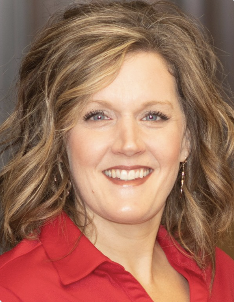 Carla Barnett
Carla Barnett
Community National Bank & Trust, Emporia
Whatever else she is, Carla Barnett is a financial-services gladiator. How else can you describe a bank president whose territory is flanked on either side by Kansas City and Wichita, with Topeka just up the highway? And with the biggest local banks from those markets playing in her backyard, along with the major national banks that operate in Emporia. Barnett earned her degree in business from Emporia State University, and for the past 20 years, she’s been a fixture on the banking scene in that college town of about 24,000 residents. After more than 11 years with Topeka-based CoreFirst Bank, where she rose to become vice president and loan officer in both residential and commercial processes, she moved to Community National Bank & Trust. She came on board there as senior vice president of lending and, for the past eight years, has been president, bringing to the task broad experience in commercial real estate, equipment, leasing, lines of credit, and residential real estate loan origination. The Emporia location is one of the larger operations among 40 sites the Chanute-based bank has in Kansas, Oklahoma and Missouri. With assets of $2.2 billion, the parent is big enough to offer full-service banking but well below the $10 billion threshold in the upper range of community banks. Nonetheless, it punches above its weight by offering a full range of services for both personal and business accounts.
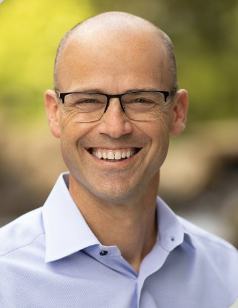 Michael Bartkoski
Michael Bartkoski
nbkc Bank, Leawood
Coming out of Kansas City’s Northland region, where he’d seen family members and a friend succeed in accounting, Michael Bartkoski followed their lead to a degree from Rockhurst University. While in college, he worked for several years in community banks, where his interest was piqued. “I gave private company accounting a shot for a minute, he says, but “just a couple of years after graduating college, I had the chance to return to banking and work for someone I deeply respect.” And with that, Bartkoski had found his path. He hit the books again to master commercial banking at the ABA’s Stonier Graduate School of Banking, then was off to the University of South Carolina, focusing on bank investments and financial management. He came on board at nbkc in 2009, and the fit was perfect. He now oversees 355 employees at a bank with $1.12 billion in assets. “I could see how open and creative the organization was, and it was obvious that if I was willing to roll up my sleeves, I could be an impact player,” he says. “I wanted to be at a bank where I could be surrounded by smart, engaged, and creative people.” That, he says, is precisely what’s needed to compete here. “Kansas City is a highly competitive market for banking talent, which makes maintaining a strong workplace culture critical,” he says. “You can have the best strategy in the world, but without the right talent, it will never succeed.”
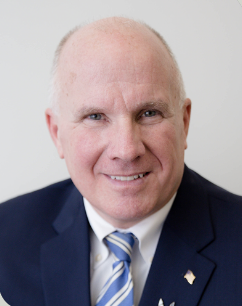 Dail Blake
Dail Blake
The Salvation Army, Prairie Village
For much of his career, Dail Blake was a wealth adviser with Country Club Trust. Last fall, he took a leap of faith to broaden his impact. “While helping people as a wealth adviser, I was helping them with an investment for their own future,” he says. Then, he shifted to the non-profit sector as donor relations director for The Salvation Army. In that way, “I am helping the ‘client’ with an investment in the future of their community,” he says. “As a wealth adviser, we also often looked for ways for the client to give back, whether it be annual or planned giving, so they could leave a legacy after they are gone. Many of the same conversations are being conducted as I did as a wealth adviser.” A fifth-generation Kansan whose great-grandfather settled in western Wyandotte County, he earned his degree in physical education at Baker University and then picked up an MBA, steering him into the wealth lane. “My master’s thesis was on the benefits of corporate fitness and wellness programs, so my later volunteering for Hospital Hill Run and The Trolley Run are natural fits, along with my love of running,” he says. He was inspired by Country Club’s culture of giving back to the community, including helping the homeless and the sufferers of mental illness and post-traumatic stress. “These are key points of emphasis with The Salvation Army,” he says, making it quite appealing to fulfill my passion to help those who are suffering.”
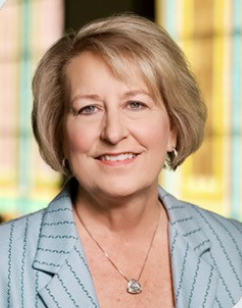 Amy Bragg Carey
Amy Bragg Carey
Friends University, Wichita
Four-year colleges, especially private ones, have had a tough few years hitting demographic headwinds. Amy Bragg Carey isn’t ready to yield an inch. In nearly a decade as president of Friends University, she’s pushed for the expansion of athletic teams, new market-demand programs and majors such as cyber-security and mechanical engineering, and added workforce development experiential learning opportunities for starters. “We’ve consistently honed our strengths as a university and continue to provide excellence and rigor so that companies and non-profits recognize we graduate quality students who are ethical, creative, problem solvers,” she asserts. Those programs complement efforts to remain a national leader in the area of Christian spiritual formation with expanded graduate programs to draw in students from around the country. “Our campus culture,” she says, “is to work hard at recruiting and out-recruiting other colleges; we know what is at stake.” She’s a Minnesota native exposed to higher education with her father’s work, and after starting her career in non-profit work, moving back to campus came naturally, and she prepared for it by earning her doctorate along the way. “In a sense, yes, I knew that the doctorate would be important for this role, but I also believe that lifelong learning is life-giving and energizing,” she says.
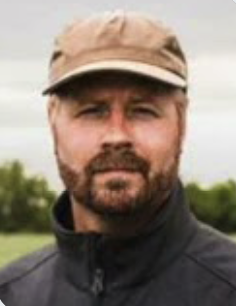 Clint Brauer
Clint Brauer
Greenfield Robotics, Cheney
Let Clint Brauer fill you in on what regenerative farming means for farmers, consumers and the quality of America’s food supply. He’s on a mission to take chemicals out of the ag equation. This Cheney native, who thrived in the California tech sector but came back to take over the family farm, founded Greenfield Robotics to promote regenerative practices that, he says, “protect ecosystems, improve soil health, and yield a cleaner food supply. We plan to work tirelessly until we can one day remove all chemicals from farming and our food.” How? With little robots. “The bread and butter of our robotic services are controlling weeds on broadacre crops, like cotton, soybeans, and sorghum/milo,” he says. Fields are droned and mapped, then weeds are cut close to the ground, with minimal crop damage—less than traditional spray rigs—and lower costs as farmers can forsake large-scale machinery and quicker return to the field after storms. After returning from California, he says, “I conducted countless hours of research in grocery stores since I’ve always been fascinated by the connection of good, clean ingredients to health and well-being. I wanted to see if everyday consumers knew what exactly was in their food—or where it came from. Spoiler alert: Most did not.” Three years into operations on paying fields, the company has a partnership with MKC, a full-service agricultural cooperative in Kansas with over 11,000 members, and is backed by Chipotle as well, Brauer says.
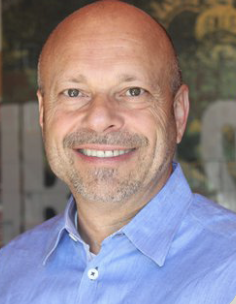 Ed Brownell
Ed Brownell
SPIN! Neapolitan Pizza, Lenexa
Burgers. Bagels. Pizza. If it comes out of a commercial kitchen, Ed Brownell has probably been there, done that. And at a high level. For four decades, he’s made a living in one of the toughest business sectors around—restaurants. But whether the venue was casual dining, fast casual or quick-service restaurants, he’s made it work, whether the enterprise at the moment was company-owned or a franchise operation, including Bagel & Bagel, Einstein Brothers, Pizza Hut and his latest partnership, SPIN! Neapolitan Pizza. Like many in that line of work, “I just kind of ended up in it,” he says; no grand plan involved. It started as a waiter and bartender while he was at the University of Utah, which put him in the orbit of Jaimie Coulter, the late Wichita-based restaurateur. Brownell moved on to district manager for Coulter, learning what the trade was all about and what it would take to succeed. “I’ve spent over 40 years learning the business,” he says addressing its stress potential. “You’ve got to understand what business, you’re in, and at the end of the day, you’re in the entertainment business for guests. You’ve got to give them the experience and food quality and service to support you and come back.” That approach has sustained his operations through the pandemic downturn, and more recently, through inflation and an economic cycle that has cut into disposable incomes. “I think people are a lot more selective where they spend their money,” he says, “especially in the last few years.”
Just to put the importance of Steve Crusinberry’s job into perspective: The population of Geary County, home to Fort Riley, is a bit more than 35,000. But the fort itself is home to 15,000 active-duty personnel, as well as 18,000 of their family members. In addition, roughly 5,600 civilian employees work on the 101,000-acre base, home to the Army’s 1st Infantry Division. So, yes, Crusinberry duties account for a major link in the region’s economy: As the fort goes, so goes Geary County and Junction City, and the Army estimates that its economic impact on the state is $1.88 billion. Crusinberry is deputy garrison commander at the fort, making him the right-hand man for the rotation of command figures routinely—and briefly—stationed there by the Pentagon. He’s the commandant’s primary adviser on operations support and delivery of services there, and he brings to that task the eye of a seasoned military operations officer. He spent 20 years in the Army, retiring in 2006, having worked his way up the chain of command from infantry platoon leader and company commander to roles that included defense attaché in Paris, Mobilization Assistance Team Chief, J4 Joint Task Force 160 & Coordination Element Team Chief. He holds a master’s degree in international policy studies, and he earned the Joint Service Commendation Medal, Army Commendation Medal, National Defense Service Ribbon, Good Conduct Medal and the Expert Infantryman Badge, among others.
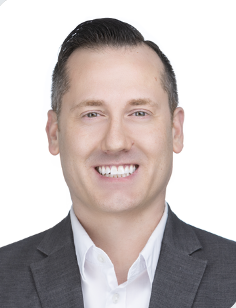 Sean Dixon
Sean Dixon
Visit Topeka, Topeka
Some fathers and sons bond over sports. In the Dixon household, growing up, Sean and his dad connected with movies. “I’ve always been passionate about movies and media,” he says. “We were the family with bookshelves full of VHS tapes, always lending out movies to friends.” That love for stories well told led him to media studies at Missouri State University, flirting with the idea of a movie life. “Although I didn’t end up in Hollywood, storytelling is still at the core of what I do,” says Dixon, now president of Visit Topeka. “Working in tourism, I tell the story of Topeka—what makes it special, unique, and appealing. Through advertising campaigns, commercials, and creative projects, I’ve been able to merge my passion for media with my professional work.” After graduate school in Springfield, he caught the tourism bug, working in that tourism hotbed, before coming to Topeka in 2020. “While I loved my time in the Ozarks, I wanted to make a strategic move that allowed me to tackle big ideas and achieve meaningful results,” Dixon says. “My first visit to Topeka changed everything. I saw a city with untapped potential—a community rich in history, resources, and opportunity. Within a day, I was convinced this was where I could make a real impact. Despite the uncertainty brought by the pandemic, I took the leap, and it’s been the most rewarding professional and personal decision of my life.”
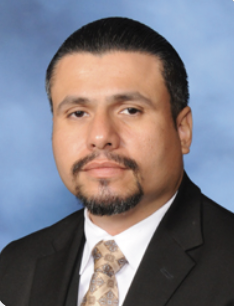 Erik Erazo
Erik Erazo
Olathe Public Schools, Olathe
His own under-performance in school left California native Erik Erazo unsure of the path he’d take but certain of one thing: It wouldn’t be teaching. Then, he made his way to Kansas. Seeking work after leaving the military, he took a security-company role, assigned to Olathe North High School. “It was there, interacting with students, that I discovered my passion for education,” he says, so through evening and weekend classes through Pittsburg State, he earned bachelor’s and master’s degrees in career and technical education. It wasn’t easy. “When I first arrived in Kansas, I stayed with my cousin in Kansas City, Kan., for about three months while my wife and children remained in El Cerrito, Calif.,” he says, but it’s been worth it; he’s now the district’s executive director of student and community engagement. That security role, he says, “allowed me to connect with students who were navigating challenges like those I faced growing up. I particularly noticed an influx of Latino students who were new to the area due to their parents’ working in Kansas’ housing boom.” Erazo has received multiple district and civic awards for his work, which includes the development of programs like the district-wide Hispanic Leadership Club, the Olathe Leadership Lowrider Bike Club, which was designed to engage students uninterested in or unable to participate in sports, and The Spot, an afterschool program.
In 2017, the Kansas State High School Activities Association conducted a national search for a new executive director. Turns out, the leader they were looking for was 140 miles straight down the interstate: Bill Faflick, who was serving as assistant superintendent of the Wichita school district at the time. Confident that he was ready to provide oversight for more than 760 member schools strewn across an 82,000 square mile playing field, Faflick took the job with an agenda already in mind: “It is my goal to provide the vision and energy necessary for the KSHSAA staff to engage, collaborate, and lead the charge for healthy interscholastic activities programs in Kansas schools,” he said as he stepped into the role, declaring that under his watch, the association would operate with three core values of courage, confidence, and compassion. His background in athletic administration included 12 years as the district’s athletic director and four more before that at Wichita Southeast High School, where he also taught mathematics and coached track and field and cross country. Far more comprehensive than overseeing football and basketball, the association sets the playing rules for interscholastic competition in 15 high school sports, along with nine non-athletic programs such as debate, speech, drama, music, and student council.
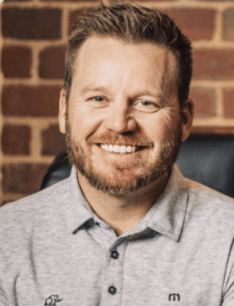 Jake Farrant
Jake Farrant
Mammoth Sports Construction, Meriden
Fresh out of college, Jake Farrant recalls, “My first job was with a mortgage company, cold-calling people asking if they were interested in refinancing. Sales can teach you a lot of valuable life and business skills. It will also expose a lot of strengths and weaknesses. For me, it exposed a lot more of the latter, so my sales career was short-lived.” So he started working for his uncles, who did golf course work. Then, an idea came to Farrant: to build better competitive venues in any sport. “Like most small businesses, I recognized a need and a customer base that could be served better,” he says, and thus was born Mammoth, which handles projects of all sizes, from football field turf installation to weight rooms to master planning and more. In building a national book of business, Farrant remains rooted close to home but has built his team with flexibility. “In today’s age of work-life balance, work from home, Zoom, and other technologies that keep us connected, we believe work can be accomplished in a variety of ways,” Farrant says. “A lot of our Meriden office team members live in rural areas and prefer this lifestyle to the bigger city. We’ve always been open to adapting to the other team members, and where they call home as well, so we have offices in downtown Kansas City in the Crossroads district and our engineering team’s main office in the Lenexa City Center.”
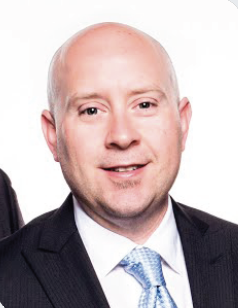 Cody Foster
Cody Foster
Advisors Excel, Topeka
Growing up, Cody Foster helped sling his share of hash at his grandmother’s café in Stockton, Kan. So it was deeply personal when he saw a divorced woman in her 60s lose her business—bankrupt and without means of support. “In that moment, I decided I wanted to change that,” he says. So began a journey that led to a wealth-management empire. He took a job as a teller in a bank drive-through, worked full time on the evening shift of its call center while studying at Washburn University, and followed a good friend, David Callanan, into financial advisory after graduation. Frustrated by a lack of effective business development tools in their field, they started Advisors Excel, which provides services for other wealth managers nationwide. “Today, we get to help financial advisers build a better business so they can help more people like my grandma,” Foster says. He had also benefitted personally from the power wealth creation through an endowed scholarship created by a man who underwrote Washburn tuition for “literally hundreds of other students in Rooks County,” Foster says. That experience further stoked his passion for helping others create wealth for their clients. “We had the idea that we could create something that brought together the best advisers in the country to learn from each other and help each other grow,” he says. “That was the original origin of Advisors Excel, and it’s grown into something we never imagined back in 2005.”
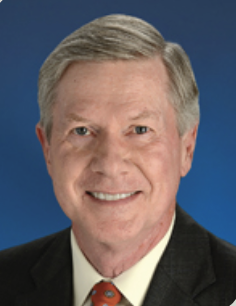 Doug Gaston
Doug Gaston
The University of Kansas Health System, Kansas City
After a career in public accounting, Doug Gaston signed on with The University of Kansas Health System as chief financial officer in 2017. The system he started out with isn’t the same one it is today. His fingerprints are all over the efforts that over the past two years have brought other billion-dollar health systems into the fold—Olathe Health System last year, and Liberty Hospital, on the Missouri side, this year. Both, he says, required team efforts with supporting financial analyses. “While health-care financial outlooks in general are challenging at best right now,” Gaston says, “we were able to show how this continued growth will help support stability over the long term. Ultimately, our senior leaders decided we could best provide care close to home and support growing patient needs across the region through an expanded presence across the metro area.” Gaston, a native of Marysville, says he’s been privileged to perform a second career act working with a team that puts patients first in every decision. “We have taken some bold steps, starting with becoming an independent hospital authority 25 years ago, and many more since that time,” he says. “The health system is successful not because of one person, but because of the thousands of people working together every day to deliver the very best health care possible.”
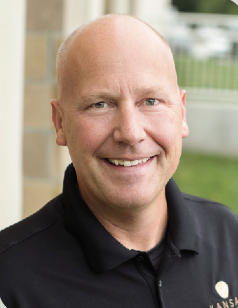 Justin Gilpin
Justin Gilpin
Kansas Wheat, Manhattan
Justin Gilpin knows wheat. For the past 15 years, he’s been president and CEO of Kansas Wheat, a collaboration between the Kansas Wheat Commission and the Kansas Association of Wheat Growers, advocating for a major aspect of the state’s economy in public-policy discussions, promoting international trade and research. He earned a milling science degree from K-State, then went to work in the money-making side as a wheat buyer for General Mills, and before that, executed daily wheat market orders at the former Kansas City Board of Trade. His background includes flour sales, grain elevator and mill management, and sourcing wheat from various classes. Marketing of wheat on a global scale entails a lot more than updating figures on Kansas crop yields, protein counts, and bushel weights. For one, it means understanding advances that wheat breeders and scientists have made in genetics, creating varieties that are more resistant to disease and more efficient in their use of moisture—a growing concern as you move from east to west into the arid High Plains. “We know that the genetics are better now than they were 10 years ago,” he says. “We know that farmers are implementing management practices that give the wheat crop a chance to have higher yield potential than we did a year ago. We just needed Mother Nature to cooperate.”
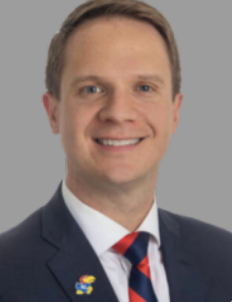 Travis Goff
Travis Goff
University of Kansas, Lawrence
Travis Goff’s phone rang on Easter Sunday 2021, with Doug Girod, chancellor at the University of Kansas, on the line. “It was almost surreal in so many ways,” Travis Goff remembers. “I had never fully allowed myself to dream about coming back home as the athletic director of my alma mater.” For a Dodge City native and KU grad who had already demonstrated his athletic administration acumen at Tulane and Northwestern, Goff possessed the requisite skill, preparation and confidence for the role. He was all-in. Having made the traditional walk down the hill for graduation, the job came, he says, with “an extra layer of responsibility, but not necessarily pressure. As Coach Self says, we are simply caretakers of something far greater than us. I am here to steward KU and its people and ensure we lead with a value system that fits our place and state.” And he’s living that responsibility out with an oversight role for the Gateway Project, KU’s $450 million rebuild of Memorial Stadium and its interface with Downtown Lawrence. It has, Goff says, “a chance to forever change the landscape of KU, Lawrence and the region,” raising the profile of both academics and the football program, layered over a mixed-use development that can drive economic growth in the region. In addition to that, he will go down as the man who hired Lance Liepold, architect of the football turn-around, and on Goff’s watch, KU added another NCAA national basketball championship in 2022.
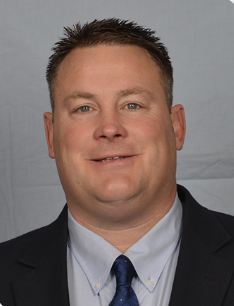 Josh Gooch
Josh Gooch
Hutchinson Community College, Hutchinson
After Josh Gooch had done two comparatively short stints as offensive coordinator for the HCC football coaching staff, he tested the career waters as a sales representative for a pharmaceutical company. When HCC had an opportunity to bring him back into the fold, it did so at the highest level: athletic director. That, it turns out, was a very good call. Already bearing a reputation for getting results on the football field, Gooch began overseeing all of the Blue Dragon athletic programs in 2015. In that span, those teams have combined to win 22 Jayhawk Conference championships—averaging nearly three a year—and 11 Region VI titles. A total of 56 HCC teams have competed in national competitions, winning it all in men’s basketball in 2017, back-to-back titles in men’s golf in 2021 and 2022, football in the COVID-19-delayed 2020 season, and women’s basketball just this year. The men’s basketball team also made it to the NJCAA title game in 2016, losing to Salt Lake. It’s a sterling record of success that comes as a surprise to no one who’s ever followed this Wellington native who went on to play linebacker at Coffeyville Community College and Fort Hays State University. In his current role, he has also been the college’s point man on a $29.4 million renovation of the Hutchinson Sports Arena and was responsible for launching new fundraising initiatives.
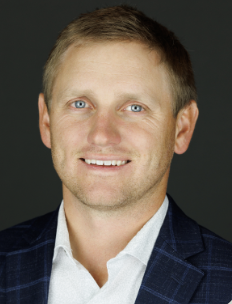 Cory Griess
Cory Griess
Prairie Dunes Golf Club, Hutchinson
Cory Griess is the caretaker of a golfing legacy: the course at Prairie Dunes Country Club in Hutchinson, rated as the state’s No. 1 venue and one of the best courses in the nation. To get it right for a course that’s on the bucket list of golfers around the world, Griess says, “It’s all in the details, big and small. It’s that stewardship and pride in this special place that allows us to succeed.” Griess is a Nebraska native who first came to Hutchinson nearly a decade ago. “Growing up on my family’s farm, my parents instilled a sense of stewardship to the land,” he says. “A love for baseball and golf led me into the turf industry; from there, I found a passion for golf-course building and agronomy.” He worked for a few courses in Nebraska, took an assistant role at Prairie Dunes for a while, and then did two years at Ballyneal Golf Club in Colorado, expanding his knowledge of turfgrass management. In 2020, he came back to Prairie Dunes. What makes it so special? “Its greens contours and rolls set the course apart from the rest; we pride ourselves on having original greens,” Griess says. “Only 3 of the 18 have been slightly altered since 1937; the rest are untouched. Perry and Press Maxwell (course designers) greens are some of the most unique and thought-provoking putting surfaces in the world. … It’s no surprise to me that many travel far and wide to enjoy this great place.”
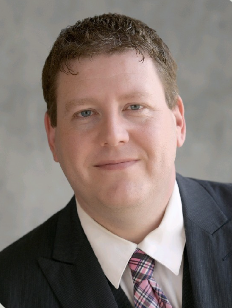 Robert Harrington
Robert Harrington
Rural Growth Strategies, Fort Scott
“School counselors,” Robert Harrington observes, “don’t tell you that you would make a great economic developer—you just happen to get into it.” So it was for Harrington, who combined his own experience growing up in a small town with a desire to help rural communities thrive. Marceline, Mo., he says, was “a community where neighbors help each other, where there are always benefits to help families suffering from some unforeseen circumstance” and where high-school football wasn’t a game, it was a civic gathering spot. His path to Fort Scott began, he says, when “my oldest son was getting ready to start kindergarten, and my wife didn’t want him going to school in the community we lived in.” Her hometown was looking for a county development director, and with his background in politics and business, he landed the job. That was 16 years and several communities ago, but “I am still working in the field and loving it,” Harrington says. “Rural America is on the cusp of seeing a resurgence of growth and opportunity,” he says. “In Bourbon County that is no different, and with the ability to reach major markets within a three-hour drive and low cost of labor and land, there is no reason why companies should not look here for their next investments.” Wind and solar projects have found their way to the region, he says, and “I also believe that there are major opportunities in distribution and logistics, food processing and value-added agriculture.”
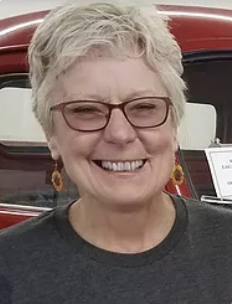 Susie Haver
Susie Haver
Cloud County Tourism, Concordia
Kansas City has its world-class fine arts and professional sports; Wichita, too, brims with theaters, museums and the state’s only urban university. Neither of those intimidates Susie Haver, director of Cloud County Tourism in north-central Kansas. With U.S. 81 bisecting the state, the county, and even Concordia itself, any outside tourism challenges are likely to come from the eastern half of the state—most everything to the west is oil rigs, cattle, and packing houses. As a tourism promoter in a town of barely 5,000 (and a county of just 8,800), she still works to drive visitor dollars to the region by leveraging its strengths. One of the biggest of those is its heritage in the Orphan Train Movement. Not particularly the brightest chapter in American history, it took place over 75 years, from the mid-19th century through the onset of the Great Depression. Concordia was the end of the line for immigrant children who hadn’t been “adopted” by settlers who, too often, were just looking for low-cost farm labor. The town boasts a museum dedicated to keeping those lessons alive. Downtown, it also has The Whole Wall, the longest sculpted brick mural in the U.S., plus shopping, dining, and entertainment, anchored by the Broadway Plaza gathering space. You can even tour remnants of the World War II POW camp for German prisoners who won the combat lottery to get out of Europe, not a few of whom opted to make life in America after the conflict.
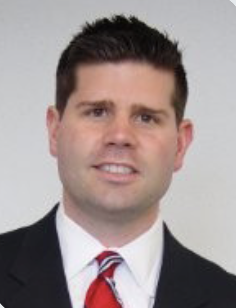 Mike Haverty
Mike Haverty
Remedi8, Mission Hills
Let Mike Haverty connect the dots for you between college baseball and a successful career in construction services: “Primarily, I learned that being successful and winning is not all about talent,” says Haverty. “It’s about hard work, belief, determination, and team chemistry, in addition to having talent.” After playing at Mizzou and securing a coaching position at Texas A&M while in graduate school, he signed on with his J.E. Dunn. From project management to executive roles over nearly 13 years, he helped build out a data-center book of business, then co-founded what is now called Remedi8, specializing in preventing the spread of fire, smoke, sound, water, and infection in buildings. Success there also can be traced to his baseball experience, as part of a Big 8 champion that had finished last just a year earlier. “We achieved this with mainly the same team as the year before, with a few key additions. But, most of all, we changed our mindset from focusing on our own personal success to focusing on the team’s success, which really built our chemistry..” He has carried those lessons into business leadership. “Everyone wants to be successful individually,” he says, “but when you have a team of people pulling in the same direction toward a common goal and putting the company first, great things usually happen for both the company and the individual.”
In the vast sweep of northwest Kansas, one name dominates for hospital care: HaysMed. With more than 200 licensed beds, it dwarfs any other acute-care facility—there aren’t many—in that stretch of the High Plains. Since 2017, Eddie Herrman has been running the show for the health system, which is tasked with providing care for an estimated 107,000 Kansans strewn across nearly two dozen counties. Unlike the more competitive Kansas City-Topeka corridor or the Wichita market in Sedgwick County, HaysMed is something of an outpost: The only other facility in what the Census Bureau calls Public Use Microdata Areas is Goodland’s 24-bed hospital, nearly 150 miles west on Interstate 70. His professional career started on the nursing side, with his degree in registered nursing from Oklahoma City University. He served as chief nursing officer for a pair of Oklahoma hospitals in the Integris health system, went back to school to earn his MBA in health-care administration from the University of Phoenix, then headed into leadership as president of Bass Baptist Health Center in Enid, Okla. Last year, Herrman was named by Becker’s Hospital Review as one of its Community Hospital CEOs to Know, recognizing the piece represented by smaller facilities in the larger health-care puzzle.
In creating one of the Kansas City region’s fastest-growing companies—starting with a concept as simple as getting paid to haul junk—Josh Herron placed a bet. But not on Josh Herron. “I don’t think it’s about betting on myself as much as it is about betting on our team and the concept that if you can create a community that believes in a mission and a vision, anything is possible,” he says. “The premise that anything is possible when you invest in your people has become the fuel that helps us drive explosive growth.” Through a strategic expansion of Southwind’s service line and footprint, revenues have grown from $8 million in 2018 to more than $107 million last year. That had to start with a vision for what could be. “The home-services category is incredibly fragmented and ripe for disruption and consolidation,” Herron says. Others have noticed; he and partner Tyler Staszak have seen more professional competition enter the marketplace as consolidation continues in that sector. Herron, who grew up in suburban Lenexa, sees more growth dead ahead. “We will continue to expand our footprint,” he says. “In 2024, we acquired over 20 locations across North America while organically growing our same-store sales.” The goal is to centralize all essential home services under one roof at a low monthly cost, “giving you your time back and keeping your home maintenance easy,” he says.
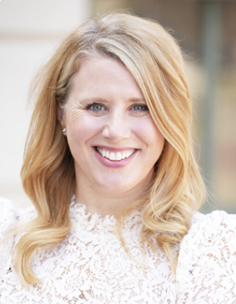 Brittney Holum
Brittney Holum
Arrow Advisors, Independence
In a city of barely 8,300 people and a county of 30,000, big-city services can be hard to come by. Business advisory, however, isn’t one of them in southeast Kansas, where Brittney Holum returned to her roots to promote business growth, founding Arrow Advisors in 2015. “It’s my ‘WHY,’” Holum says. “Helping others achieve success in their chosen ventures is what drives me. Seeing clients build on the tools and strategies we develop together and turn their dreams into thriving businesses is incredibly rewarding. Many of my local clients have created transformative enterprises, and witnessing their success makes every moment spent working with them absolutely worthwhile.” Her family moved to Independence when she was three, and she earned her degree in business and recreational administration from Pittsburg State, with an early goal of working in sports management. “My initial plan was to learn the inner workings of a team’s front office and eventually pursue a law degree to become a sports agent,” she says. But when exposed to community relations while working for minor league baseball and hockey teams, “I realized I was passionate about working with the community,” so she pivoted to building community and business development skills instead. Her client base is national, but there’s something special about applying those skills at home.
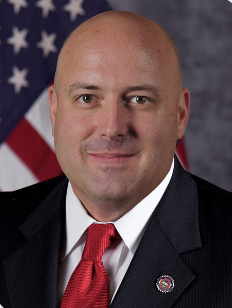 Robert Jacobs
Robert Jacobs
Kansas Bureau of Investigation, Topeka
They’re not customers in the traditional sense, but there’s no denying that Robert Jacobs, associate director of the Kansas Bureau of Investigation, cares what they think. “I was always interested in criminal psychology,” he says. “In particular, I wanted to learn more about why people committed violent crimes.” That’s why, after leveraging a tennis scholarship to Baker University, he worked in the psychiatric field for a bit. Then, Washburn University launched a master’s program in criminal justice, and Jacobs was law-enforcement-bound to both practice and preach. In addition to his bureau duties, he teaches criminal justice as an adjunct professor at Washburn. “By the time I enrolled in graduate school, I knew I wanted to work in law enforcement and began applying for positions with police departments,” he says. He became a special agent in 2001 and now is second in command at the bureau, which has a vital role in a sprawling state of 82,000 square miles. “The majority of law enforcement agencies in Kansas have fewer than 10 officers,” Jacobs says, citing the rationale for the creation of a law-enforcement support framework in 1939. It has statewide jurisdiction as an investigative resource to local law enforcement to assist when critical events occur, providing professional, expert criminal investigative and forensic science services.
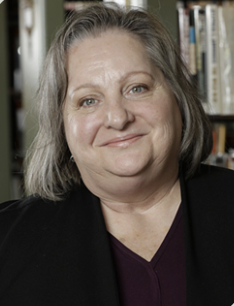 Bridgette Jobe
Bridgette Jobe
Kansas Tourism, Topeka
Looking for flexibility as a working mother back in 1998, Bridgette Jobe found a part-time tourism marketing role with the Kansas City Kansas Chamber of Commerce—her home grounds, as an authentic Dotte. Though new to it, “I quickly fell in love with the industry—its ability to positively impact communities and businesses, along with the dynamic world of marketing to visitors,” she says. That led to roles in marketing, sales, research, and administration, and eventually, to director for the city’s Convention & Visitors Bureau, where she worked for 21 years. When a similar role opened with the state in 2019, “Initially, I was not interested,” Jobe says, “but the role kept being brought to my attention.” She rolled the dice, got the job, and opted for a new challenge. “I am a firm believer in the sentiment that opportunities will present themselves when the time is right,” she says. “You just have to be open to taking them.” One of my favorite things about promoting travel to Kansas is being able to share the variety of things there are to see and do in the state, and the various places you can visit. Kansas is filled with diverse landscapes, striking rock formations, boundless outdoor activities, and world-class and quirky attractions. We have cities of all sizes, from buzzing metropolitan areas to small cities of less than 500 citizens. All of it together makes us who we are—Kansas—unique and special.
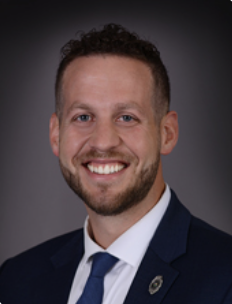 Mike Kagay
Mike Kagay
Shawnee County DA, Topeka
Mike Kagay has some discomfiting news for bad guys in Shawnee County: The youngest man ever elected district attorney there isn’t opposed to spending his entire career in that office—and he has a lot of runway left. Experience was no issue for voters in August who ceded him a third term. When he started in 2016, “My record as a prosecutor spoke for itself, and I worked diligently to show colleagues and the community that I was ready for the role. Building trust through transparency and delivering results has been crucial in addressing any initial doubts.” Raised west of Topeka in St. Mary’s, Kagay developed a strong sense of justice at an early age. “That grew into a passion for advocacy, which led me to the path of prosecution,” he says. So there was a strategy involved in his studies at Washburn University. “I pursued English Literature because of my love for reading, writing, and critical thinking, but my path was always directed toward law school,” he says. “The skills I honed during my undergraduate studies proved invaluable when I transitioned to Washburn School of Law and continue to serve me well in my role as district attorney.” While the challenges in Topeka are real, Internet crime-rating sites don’t capture the steps law enforcement has taken there, he says. “Our focus remains on collaboration and long-term solutions to make Topeka a safer and more vibrant community.”
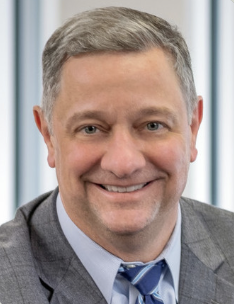 Kurt Kuta
Kurt Kuta
CoreFirst Bank, Topeka
A local tradition in Columbus, Neb., around Thanksgiving, brings early-career natives back from distant cities and states to keep each other caught up on events in their lives. In a setting like that, young Kurt Kuta took note: A number of these people, just a few years older, were already enjoying success in banking, including some on the regulatory side. “For some reason, that appealed to me,” he says. So it was off to NU in Lincoln for a degree in finance, entry into the banking world as a federal examiner, and finally, into regional banking roles, landing in 2013 as CEO at CoreFirst—Topeka’s second-largest hometown bank, with $1.24 billion in assets. “What I found here was a family-owned community bank that was super-well-positioned in Topeka, a strong, deep deposit base, and market leader with a strong trust department.” Offices in Kansas City and Denver meant the ability to further diversify the customer base, he says. He says that within the competitive stew of regional banking, “that forces the competition and raises the level of expectation and service provided to customers.” He says the pandemic and federal response demonstrate that expectation. “If you look at the number of PPP loans done for the Midwest alone, the central third of the U.S., it blows away anything else in the rest of the country. That was a source of reaffirmation on how committed a lot of my community bank peers and institution friends are to customers.”
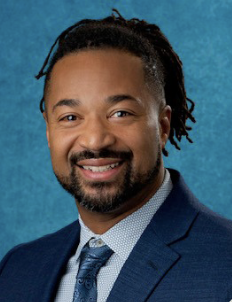 Larry Lewis
Larry Lewis
Growing Futures Early Educa-tion Center, Overland Park
Tucson. Amarillo. Shreveport. Not an easy childhood for Larry Lewis as his parents moved from one restaurant job to another. Then came Overland Park. “Culture shock? Oh, my gosh,” he says. “I grew up in very diverse communities, specifically in southern spaces.” Including 1990s Miami, where Haitian, Jamaican and Cuban immigrants poured in, upsetting the social order. “Everyone,” Lewis remembers, “was in survival mode.” When the folks came to the Kansas suburb, though, he found a new life—and a path for it. “The community showed me a different way of life, something I had never seen before, experienced before.” He parlayed his love for sports into a football scholarship at Hutchinson Community College, then headed to Manhattan. Urged to be civically engaged by K-State coach Bill Snyder, Lewis explored the Boys and Girls Clubs and was hooked on the mission. “I had never seen this kind of interaction with children, and I saw children who needed it the most. I know: I was that child.” After earning his degree, he spent most of his career with Boys and Girls Clubs in Kansas City and Oklahoma, then chanced into the opening with Growing Futures in 2022. “As I got into it, the science, the brain development, I realized where the opportunities for most impact truly existed,” he says. They lay in the classroom. “This community did that exact thing for me. It poured itself into me, this poor little kid in a very affluent world.”
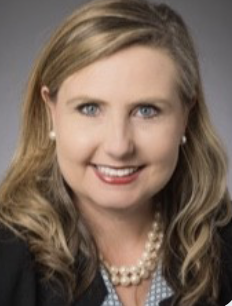 Christina Lively
Christina Lively
Blue KC, Overland Park
Leadership roles and being part of a high-performing group are not mutually exclusive approaches to career development. Looking at each, Christina Lively determined that she wasn’t settling for just one. “I figured out quickly during my school years that I enjoyed being part of a group/team as well as holding leadership positions,” says Lively, vice president and chief marketing officer for Blue Cross & Blue Shield of Kansas City. “The social aspects, as well as the sense of accomplishment and pride in achievements, were motivators.” When she headed off to the University of Kansas, she had a plan—for a while. “I spent my freshman year as an architecture major (I still love and appreciate beautiful structures!), but it definitely wasn’t going to be my career,” she says. “I was creative but not an artist, but I loved to write and appreciated great marketing and advertising. All it took was one advertising class, and I was hooked.” At Blue KC, where she’s on her second tour of duty, she’s driving the organizational messaging for the region’s largest health insurance provider, with more than 1 million individuals covered. “It was a much harder decision to leave Blue KC in 2019 than to return in 2021,” Lively says. But with the role of chief marketing officer, she says, “It was an easy decision to come back to one of the best KC companies, work for such supportive leaders, with the best team, and serve the Kansas City community that I love.”
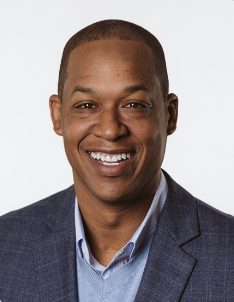 Kevin Lockett
Kevin Lockett
Fulcrum Global Capital Partners, Overland Park
Kevin Lockett was always good with numbers—at one point, he was K-State’s all-time receiving yardage leader before racking up stats in the NFL with four teams, including the Chiefs. Now, he’s interested in far more significant numbers for Kansas as a founding partner in Fulcrum, a venture capital firm focused on ag-related companies feeding the world. “I have learned over the past decade of my investing career how critical Kansas farmers/growers are to the U.S. economy and its wider geopolitical interests,” says Lockett, who served as CFO in various settings before Fulcrum’s founding. “The world is ever-changing, and a critical advantage of Kansas/Midwestern farmers is access to the world’s best, most cutting-edge innovative technologies.” Thus, he says, the combination of access to world-leading agricultural research universities and a friendly business climate positions Kansas—and the broader region—to play a significant role in how food is grown globally. And, he notes, to reap significant benefits from that. He joined the Fulcrum partnership because, he says, “The state/region is considered a world leader in agriculture and animal health.” The firm leverages assets that might identify the next high-growth opportunities. “As a result, we now have ownership positions in a number of companies positioned nicely to provide new technologies that will increase overall global food production while making our food safer for the consumers.”
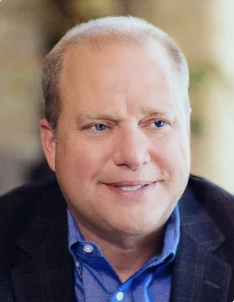 Mark Luetters
Mark Luetters
Koch Ag & Energy, Wichita
In 2005, Koch made the largest acquisition in its history, dropping a cool $21 billion to add paper and pulp producer Georgia Pacific to its stable of global enterprises. As part of the effort to bring its new charges into the Koch culture, the Wichita-based conglomerate tasked Mark Luetters to serve as president of GP’s wood products division. After a 12-year run, he returned to Wichita, where he’s now president of Koch Ag and Energy Services, a key operating unit for a company with annual revenues estimated at $125 billion. Luetters plays a big role with Ag & Energy, a division that includes Koch Fertilizer, producing a wide range of plant nutrients; Koch Energy Services, which markets natural gas through North America; Koch Methanol, part of a $31 billion market for vital industrial chemical production; and Koch Agronomic Services, which helps retailers and farmers improve crop production and quality. He came on board at Koch in 1989 after earning his bachelor’s degree in electrical engineering from Kansas State University and started with the company’s pipeline division. After a stint in the business development group, which executed mergers and acquisitions for the parent company, he headed to Koch Carbon for a decade, holding leadership roles in international physical commodity trading. Early last year, he was promoted to senior vice president of Koch, in addition to his role with Ag & Energy.
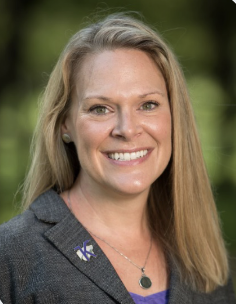 Susan Metzger
Susan Metzger
Kansas State University, Manhattan
Among her varied executive duties at K-State, Susan Metzger is director of the Kansas Water Institute and the Kansas Center for Agricultural Resources and the Environment, dealing directly with two of the biggest issues facing the state: Water availability and environmental quality. “Agriculture is critical to Kansas’ economy, accounting for a total of $81 billion in economic impact, or 34 percent of the total state GDP,” she notes. “More than 36 percent of the fed beef produced annually in the United States comes from Kansas and the Southern Great Plains. This economic driver is dependent on, and frankly, at risk because of the decline in the Ogallala Aquifer” under western Kansas. It’s more than a matter of economic health, she says; at peril is the nation’s food supply, as well as national security. A botany class at the University of Mary Washington derailed thoughts of becoming a pro hockey team physician, she says, but that was a good thing. “I often tell students to have a five-year plan as guidance but be open to possibilities that may continually reshape that plan. Every great opportunity I have had in my career has been because I followed an idea or invitation to try something different.” She sees the impact of tech in the field: “K-State is creating and working with technologies such as sensors, drones, and satellite imagery combined with advanced data analytics to help farmers apply fertilizers, herbicides, and water more efficiently.”
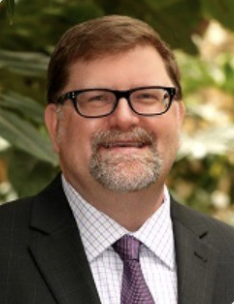 Scott Newland
Scott Newland
Sedgwick County Zoo, Wichita
Who doesn’t love a day at the zoo—and what if you could do it every workday of the year? Welcome to Scott Newland’s world as director of the Sedgwick County Zoo, where he started as a volunteer in 1989, and today is its president and CEO, where his charges include more than 2,500 animals of nearly 500 species. With a level of community support matched by few cities of Wichita’s size—it helps to have Koch as a benefactor—the nation’s second-largest private company in your hometown—the zoo’s high-level exhibits and displays attract more than 625,000 visitors a year. He started full-time in 2000 and took the reins in 2022, and he knows he has a good thing going. “I’ve been to over 170 zoos now, and what we have in Wichita is something that is really unique in zoos in the United States,” he says. “The biggest reason for me staying here is that the (other) exhibits are not as nice as what we have, or the animal exhibits are not as robust as what we have.” He feels a particular measure of pride seeing the reactions of industry peers when they tour his operation. “It’s one of my absolute favorite things to tour colleagues around this place and see how much they are amazed at what we’ve been able to accomplish here,” Newland says. “The thing that’s given me so much joy is being in Wichita and creating this gem of a facility this community has.”
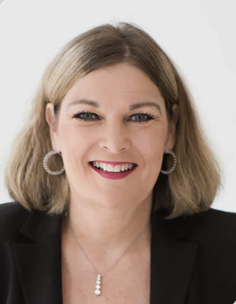 Cathy Nugent
Cathy Nugent
Willis Pendleton, Leawood
Social media gave us the term “influencer,” one that seems to be applied to anyone who might hold sway over a pet. You want a real influencer? One who was doing it long before Jack Dorsey sent out the first Tweet? Meet Cathy Nugent, founder of Willis Pendleton. Her Leawood firm specializes in public affairs consulting, corporate campaigns, and non-profits. Nugent had early career exposure to the nation’s political power structure, serving as a White House advance team member and dealing with media, transportation coordination, and travel at home and abroad. As that tour of duty was winding down, she founded Willis Pendleton, and in the years since, the firm boasts of handling more than 1,000 public-policy engagements, crisis-management gigs, and efforts to influence—that word again—elected officials on burning questions of the day. That record earned her praise from a strategic marketing acquaintance as “The ultimate connector of people and causes.” As active as she’s been in politics, albeit often behind the scenes, Nugent has a long resume of civic and non-profit engagement in the region. She’s a founding board member of the Dwight D. Eisenhower Excellence in Public Service Series, a past member of the library board of directors for Kansas and Johnson Counties and the Kansas City Convention & Visitors Association, and she previously was vice chair of the Johnson County Republican Party.
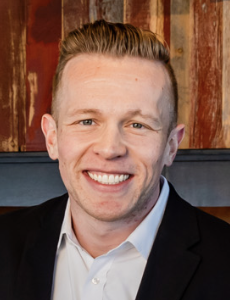 Chad Offerdahl
Chad Offerdahl
The Big Biscuit, Prairie Village
Did you ever unexpectedly stumble upon a great place to eat and realize you’d found something really special? Chad Offerdahl did, back in 2009, when he and some business associates chanced upon the Independence location of the breakfast-specialty restaurant The Big Biscuit. They bought breakfast. Then they bought the business from the founder, who had no desire to expand beyond his two locations. Right away, Offerdahl, says, “we saw tremendous potential. We loved the menu, the vibe, everybody was enjoying it. We knew we could do something with it, so we made an offer and bought it. Then came the gritty work of expanding, first with one new location in Shawnee in 2011, then two, then three. Now, Offerdahl is preparing to open a 30th location in the spring, with sites in Arkansas and Oklahoma already operating. Even though the economy was still shaky in 2009, The Big Biscuit screamed “opportunity” in a consumer segment that is vastly underserved relative to lunch and dinner. “It still is, but not like it used to be,” Offerdahl says. “We saw a broad appeal that would reach into many markets.” What makes breakfast challenging, he says, is the customization people want—eggs over easy vs. sunny side up vs. scrambled, vs. omelet-style, for example. But it’s also a high-margin space, he says, “if it’s well-executed. It’s fast-paced. It’s simple, but yet complex at times. It can be orchestrated chaos at peak hours, but it’s beautiful to watch our kitchen at max capacity, moving food through at a high pace.”
 Matt Michaelis
Matt Michaelis
Emprise Bank, Wichita
Matt Michaelis’ grandfather bought into the predecessor of today’s Emprise Bank back in 1965, followed by Mike Michaelis in the leadership role. But before Matt would follow in their footsteps as the third generation of family leadership, there was much to learn about the financial services outside of either the bank or Wichita itself. After earning his business degree with honors from KU, he headed east for a decade, mastering the world of New York investment banking, before joining the Emprise board in 2006. In 2017, he was named to succeed his father as president and CEO, and he’s chairman of the board for the third-largest hometown bank in Wichita and seventh-largest in the state, with 447 employees and $2.54 billion in assets and three dozen locations throughout south and central Kansas. The family’s history with the bank began with W.A. Michaelis’ purchase of a company that owned Stockyard National Bank. Rebranded as United American Bank & Trust, it added to its geographic footprint with multiple acquisitions, consolidating them under the Emprise flag through the 1990s. Matt Michaelis has a resume of civic and non-profit service benefitting Downtown Wichita Development Corp., the Wichita Metro Chamber of Commerce and the Greater Wichita Partnership. On the non-profit side, his work has promoted the Sedgwick County Zoo, the Kansas Health Foundation and the Wichita Art Museum.
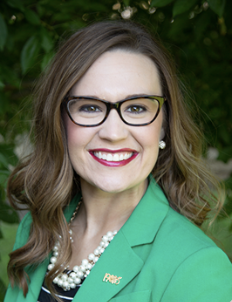 Lindsey Pannbacker
Lindsey Pannbacker
Kansas 4-H Foundation, Manhattan
Hailing from tiny Woodbine (pop. 200) in Dickinson County, Lindsey Pannbacker was a typical candidate for 4-H, and indeed, she made the most of it. What she probably didn’t know was that she had found a calling: She’s the vice president of development for the Kansas 4-H Foundation, serving the largest youth development organization in the state and nationally—more than 80,000 in all 105 counties of Kansas. And from it, she’s learned something more. “Through 4-H, I learned the value of giving back to my community and the importance of philanthropy,” Pannbacker says. “It wasn’t until I became a development professional that I made that connection. Philanthropy is so ingrained in 4-H through civic engagement and collective giving—we can achieve more together. It is so rewarding to connect with those who care about youth development. Their generosity inspires future leaders of Kansas.” In college and beyond, she says, she began to appreciate the experiences and skills gained from her time in 4-H, whose members are four times more likely to contribute to their communities as adults. That helps make her role in development and fund-raising a natural fit. “It’s fulfilling and meaningful work,” she says. “I end each day feeling like my work has a positive impact.”
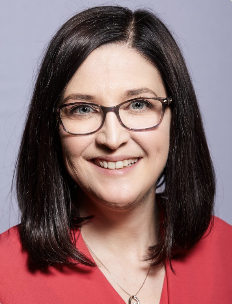 Michelle Patterson
Michelle Patterson
The Home Depot RDC, Topeka
The average Home Depot retail location in the United States sprawls across more than 100,000 square feet. Keeping those stores’ shelves stocked requires more space. A lot more: In the Kansas City region, the company’s stores are served by fleets of semis that flow in a constant stream from the Rapid Deployment Center that Michelle Patterson manages in Topeka—a massive operation that took root with the opening of that 465,000-plus square-foot facility in 2010. Topeka is her most recent stop on a 12-year stint with the company, having previously managed its logistics sites in New Jersey, Massachusetts, and Virginia. She sharpened her logistics skills during a four-year stint in the Marines, followed by six years with a flooring products company and five more with Target Corp. A lot of people think of The Home Depot as a hardware store and do-it-yourselfers paradise. They’re only partly right. As Patterson’s team of roughly 500 demonstrates, it’s actually a logistics company that happens to process hardware shipments. So she’s touching a lot of projects with her work; at her previous stop, she oversaw the processing of more than 165 million units of inventory flow, with an aggregate value of $195 million. Topeka was picked for her site in 2009, building on its credentials in distribution; it previously had secured a Target distribution center, along with sites for Goodyear Tire, Frito-Lay, and Hill’s Pet Nutrition.
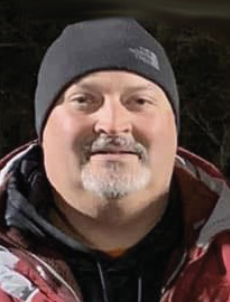 Justin Rexroat
Justin Rexroat
AGCO Corp., Beloit
Armed with an industrial engineering degree from K-State and an MBA from KU, Downs native Justin Rexroat had what he needed to leave north-central Kansas behind for a career in logistics, working in Kansas City. In 2012, he returned closer to his roots at AGCO Corp.’s production facility in Beloit, about 30 miles east of his stomping grounds. There, he’s director of operations for a production site that’s part of a global company with more than 25,000 employees in three dozen countries and annual sales of nearly $13 billion. In Beloit, Rexroat oversees complete manufacturing operations for AGCO’s Seeding and Tillage division, producing planters, drills, and tillage equipment with a workforce that makes up the bulk of the roughly 880 manufacturing workers in Mitchell County, according to figures from the Western Kansas Economic Development Alliance. Earlier this year, under Rexroat’s supervision, the company completed a major investment to expand capacity at both the Beloit site and in Cawker City, 20 miles to the west. Economic-development officials say AGCO’s presence in a county of roughly 5,700 people speaks volumes about the state’s ability to attract companies that require a high-performing manufacturing labor force. Before coming to Beloit, Rexroat had spent more than a decade in the Kansas City area at Yellow Freight/YRC and BlueScope Buildings North America.
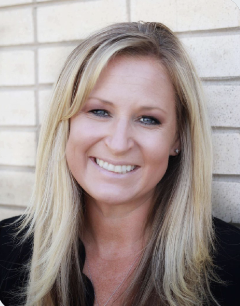 Erin Rosenthal
Erin Rosenthal
PMA Engineering, Overland Park
Even as an engineering firm intern, Erin Rosenthal had a plan. “Looking back, ownership was always the goal—it was just a matter of figuring out what I needed to do to earn the opportunity,” says the owner of PMA Engineering. “I believed that through hard work and a willingness to learn, I could achieve it. I made it a priority to absorb as much as possible—not only from my colleagues and managers at PMA but also from the architects, contractors, and developers I collaborated with on every project.” She earned a degree in architectural engineering at K-State just as more women, still vastly outnumbered today, were moving into the field. For that, she credits the inspiration of family, teachers, and coaches who led by example and encouragement. “My career path is something of an anomaly in today’s world, and I take pride in that,” she says. Luck played a part, but only a part—determination and a willingness to seize opportunities were huge. In her space, “Every project teaches you something and leaves an impression,” Rosenthal says. “I’ve been fortunate to work on so many incredible projects over the years, and each holds a unique meaning depending on where I was in my career at the time.” What’s truly meaningful, she says, is the local impact: “Driving my daughters to practice and pointing out buildings we’ve worked on in our hometown community is a reminder of the role PMA plays in shaping the world around us.”
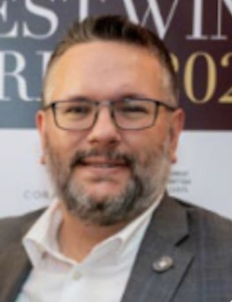 Michael Scherzberg
Michael Scherzberg
Vintage ’78 Wine Bar, Overland Park
We knew we’d goofed as soon as we asked: Hey, Michael Scherzberg: What’s the perfect wine on a weekend night off? “HA!! A weekend off?” he snorts. “I guess since it’s a fantasy question, I can name a fantasy wine: 1959 J.J. Prum Wehlener Sonnenuhr Riesling Auslese Goldkapsule.” That’s the kind of response one might expect from someone who loves wine enough to co-found Vintage ’78 Wine Bar. Clearing tables as a kid at a local restaurant, an opening for a cook came up, and the chef gave him a shot. “As soon as I was in the kitchen, I knew that I had found a new home,” he says. After culinary school here and Arizona’s Scottsdale Culinary Institute, he was on his way. “People all over the world have to eat,” he says. “This has allowed me to travel and work with the best restaurants and chefs in the country while I was young and single. It became a bit harder after getting married and having my son, but I still was able to work in amazing places after he was born.” He’s been working on various concepts for years, including a wine bar/art gallery mash-up still percolating. Opening Vintage ’78 was more than the usual restaurant risk—he did it during the pandemic. “I wasn’t betting on the conditions being right, I was betting on myself,” Scherzberg says. “I knew that if I could get the doors open, we would be able to create an experience that our guests would love.”
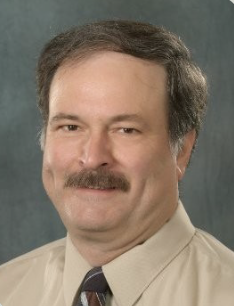 Steve Schuyler
Steve Schuyler
Frito-Lay, Topeka
We’re 700 people into our 50 Kansans You Should Know feature, but we can safely say that Steve Schuyler is in a class by himself in terms of career development: The facility manager for Frito Lay’s production plant in Topeka is the only one to date who has actually served as an oil-company roustabout on a platform off the California coast. Schuyler earned a degree in mining engineering from Montana School of Science and Technology, then started a varied career that included underground mining in Wyoming before shifting industries to something more climate-controlled in 1999. “I began my career with Frito Lay starting at the ground floor and managed the night shift potato-chip production line,” he says. “Annual department production was about 30 million packaged pounds. Total plant production was about 105 million packaged pounds; revenue was approximately $500 million.” From there, he’s taken on increasing responsibilities for the plant, which first opened in 1971 and employs roughly 800 people. Among Schuyler’s achievements there was the 2010 start-up of the plant’s biomass boiler operations, a major move to improve the environmental impact of operations. “We take urban wood waste from the surrounding area and combust it in a stoker coal fixed grate boiler to make our process steam for the plant,” he says. “This culminated five years of effort from original concept, feasibility, design, capital approval, construction, and start-up of our biomass energy system.”
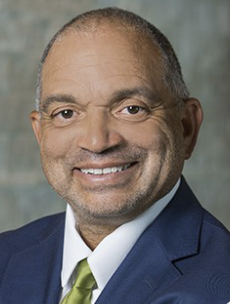 Eric Sexton
Eric Sexton
PAR Strategies/Foulston Siefkin, Wichita
The Sedgwick County burg of Halstead left a career-defining imprint on Eric Sexton, and perhaps it can be distilled thusly: Relationships matter. That’s been a core value in business, in higher-education leadership for 26 years, into his own government affairs consultancy, and now aligning with Foulston Siefkin, the largest law firm based in the state. “The thing about a small town,” Sexton says, “is that somebody’s always paying attention, even when you don’t think so. You always have to think about other people.” His father, Linwood, ran a small cow-calf operation with some row crops, so young Eric learned the farming work ethic, as well. He left for Wichita State University on a golf scholarship, earned a business degree and went to work at IBM. Then, one of those relationships intervened: a mentor leading WSU’s government-relations office was seeking to groom a successor. Sexton made the move, leading efforts to raise millions of dollars in federally funded research and representing the university with local and state government initiatives before serving seven years as athletic director. For Sexton, who earned a master’s in public administration and a doctorate in political science, it was always a question of “How do I help connect resources to this community where we live and work and call home? It was so fulfilling to make a match and be able to connect the dots for faculty and business and allow people to become more successful than they might have been by themselves.”
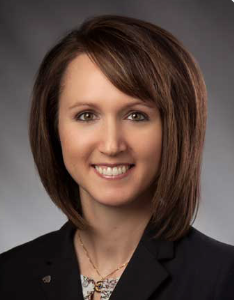 Lindsey Snider
Lindsey Snider
Central National Bank, Junction City
For more than 20 years, Lindsey Snider has been part of the team at Junction City-based Central National Bank, one of 15 in Kansas that have assets of at least $1 billion (in CNB’s case, $1.24 billion). She started at the bank in 2003 as a seasonal teller, then began her ascent through the organization and is in her seventh year in the president’s role. Even in a leadership role, she’s expanding her grasp of the industry. In 2019, she completed work at the Graduate School of Banking in Madison, Wis., and in 2022, she navigated the Kansas Bankers Association’s Bank Leaders of Kansas Program. A core value of being a community bank is embracing that “community” part. Just one example of that: Last year, her team of 265 employees generated nearly $26,000 for United Way of Junction City, the 18th straight year the bank has earned United Way’s Platinum Pacesetter award as a top-tier fund-raiser. “As a community bank, we recognize the importance of giving back to our community,” said Snider. “As a business that has been in Junction City and Geary County for the past 140 years, we want to assist with programs that improve this community and help its citizens.” While the bank itself makes a corporate donation to that cause, “most of the total funds raised are directly attributable to the efforts and generosity of our staff and community partners,” she says.
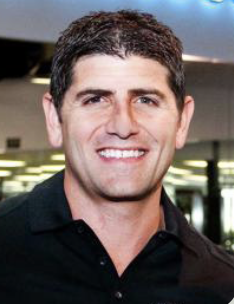 Rodney Steven II
Rodney Steven II
Genesis Health Clubs, Wichita
Sure, it’s been 30 years since Rodney Steven picked up that speech communication degree from Southern Illinois. The question is: Has he slept since? Consider: He’s the president and owner of fast-expanding Genesis Health Clubs, now with 64 locations as it asserts itself as a national brand in fitness. In a city of entrepreneurs, Steven seems willing to take a back seat to no one. He’s also the co-owner, with brother Brandon, of 16 auto dealerships in Wichita and California. And the Wichita Thunder minor-league hockey team. Other holdings include a steakhouse, trampoline and indoor water parks, and insurance companies. He’s been the subject of business articles in Tulsa, Des Moines and St. Louis, mostly for the remarkable success that has come with Genesis, which he established as something of a novelty in that sector: a service-oriented, results-based training enterprise. With seven facilities in Wichita, it has made a strategic move to widen its footprint across the state, starting with every city that had a population of at least 30,000. Organic growth and acquisitions now have Genesis locations in Colorado, Florida, Iowa, Missouri, Nebraska, and Oklahoma. Like any good national enterprise, the key is providing a consistent customer experience from one location to another, so all provide top-of-the-line equipment and programs tailored to the latest fitness trends.
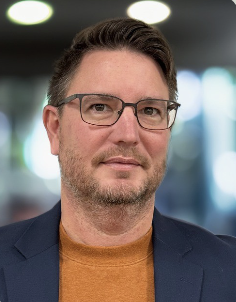 Troy Tabor
Troy Tabor
Wichita State University, Wichita
It’s one thing to have an entrepreneurially focused state university, a city with a rich history of business creation, business and civic leaders with a penchant for innovation and growth. It’s another thing entirely to unite those interests into achieve a greater good by solving problems that might be intractable without greater collaboration. That’s where Troy Tabor comes in as director of innovation intelligence for Wichita State University. Tabor was just seven when he arrived in Wichita, where his father was a carpenter and welder at the Boeing aircraft plant. He developed an early fascination with computer studies, but university courses lagged real-time developments, so he switched to business for his degree at Southwestern College, “and was glad I did; I learned an incredible amount,” he says. In his progressive roles at the university, and as a former member of the City Council there, he’s built a broad network of business and civic leaders, educators, entrepreneurs and students to engage in Design Thinking—the process of working across silos to promote innovation and growth. “I call it a bridge, a direct bridge between corporate and higher education,” Tabor says. Those networks, he says, expose students to new ways of thinking and new possibilities. “It’s not even work,” Tabor says. “It’s lovely to see the light come on in the eyes of people who are trying to do good things, as well as those in the business community, knowing that you’re helping the next generation become better and do more.”
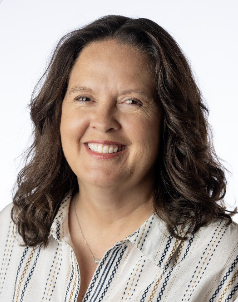 Kristen Walters
Kristen Walters
Panasonic Energy, De Soto
Meeting new people has always been part of Kristen Walters’ gig as a human resources manager. Just not 4,000 in a couple of years’ time. That’s roughly the span she’s working with at Panasonic Energy’s $4 billion plant, bearing down on a March production start. By then, nearly 1,000 should be lined out, with many more to come. A native of Republic, Mo., she got to HR through an unusual path—starting with mechanical engineering from Missouri S&T. Starting with a consumer-products company, she quickly realized that superior project outcomes required superior team performance. That led to an HR assignment, assessing and designing organizations to improve performance, elevate employee engagement, and build an inclusive, empowering culture. “Since then, I have moved between Operations and HR leadership roles and loved every minute of it!” she says. But how does one create culture in a new workplace at scale? “Panasonic Energy has strong principles that serve as the foundation for all the work we do,” she says. “Our organization believes in servant leadership. We have a high-performance culture where our job as leaders is to work for our people. Anything our people need to do their job is our job to fix.” So, where does one find the right people in a tight labor market? “We are finding talent across the entire KC region,” Walters says. “This area has such a skilled and capable work force. I’m grateful to be a part of this team and excited to see it continue to grow.”
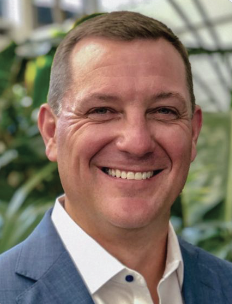 Scott Wesley
Scott Wesley
Canvas Wealth Advisors, Shawnee
Six months after earning his business degree from Baker University, Scott Wesley landed a role with Smith Barney and had a fairly typical first day on Sept. 10, 2001. The next day was nothing close to typical. “It was a rough start,” he says, recalling the terrorist attacks, “but in the end, it has been an incredible journey” to Canvas Wealth Advisors, which he co-founded in 2019 after 16 years with other firms. It now has nearly 2,000 client accounts and $625 million in assets under management. Raised in Winterset, Iowa, he came to this area at age 25 and found it an ideal setting to put down roots and raise a family. “I’ve always had an interest in planning and budgeting, but it wasn’t until my late 20s while working at AT&T that this interest really took off. A buddy and I would dive into budgeting, reading financial books, and we even gave our best try at the stock market.” When the company slapped a cap on his commissions, he started looking for a new path. Given that the region is home to some of the biggest names in wealth management, going the start-up route was brassy. “There’s amazing talent in the wealth industry within Kansas City,” Wesley says, “and I have been blessed to be part of a couple of the top ones.” Over a couple of beers in 2018, the Canvas concept was hatched. Since then, it has bagged a 2020 Goldman Partner of the Year award, and in 2023, Investment News’ Fastest-Growing Fee-Only IRA honors.
You can’t label Edward Young as “just” a lawyer or “just” an aviator: In addition to a law degree and pilot’s license, he’s earned certifications as a firefighter, college professor, peace officer, hazardous-materials trainer, EMT, flight instructor, and—this is a first for us—professional-wrestling ring announcer. Oh, yes, He also competes in Iron Man triathlons. Currently, this Ohio native, raised in Olathe, is focused on aviation law, based in this area for the national firm. His career started as city administrator for Tonganoxie. At the state level with the Department of Transportation, he was Kansas’ aviation director, working with community leaders on issues involving airports and air space, promoting air-ambulance access, and teaching lawyers about the complex nature of working with the FAA. Early on, “Law school was always my destination,” he says. “I was very lucky to narrow my focus in my last year of law school. The Master of Public Administration program is the No. 1 local government program in the country. Public service was always my plan.” At Jetlaw, he represents airports in Kansas, Missouri, and five other states, drawing on his past work managing engineering projects, including runways, hangars and other physical assets. In addition to all that, he works with the Kansas Commission on Aerospace Education and teaches
aviation law at K-State.